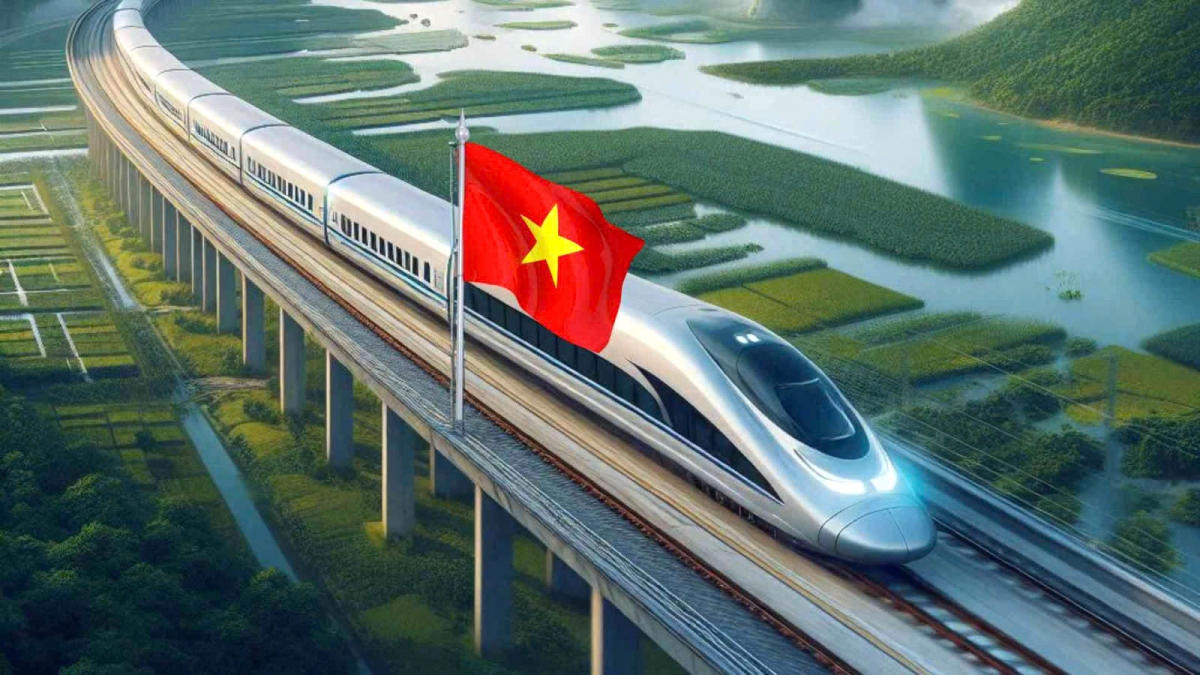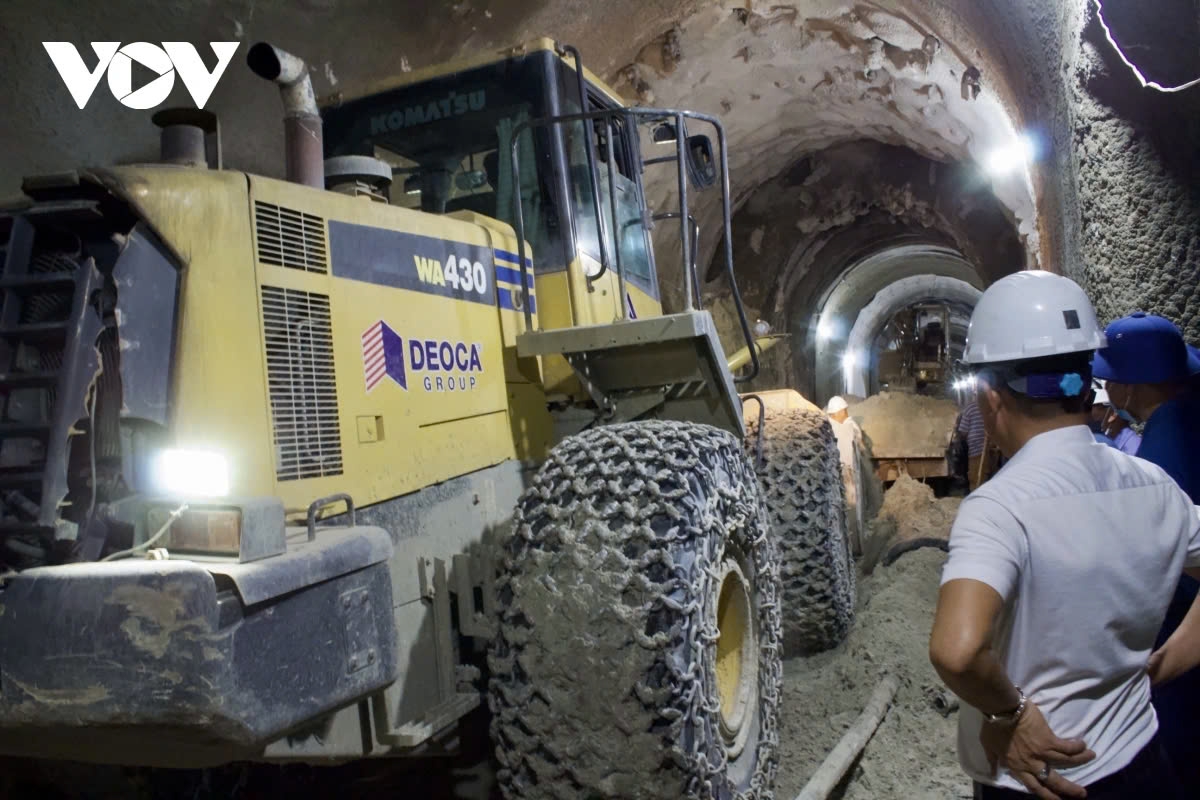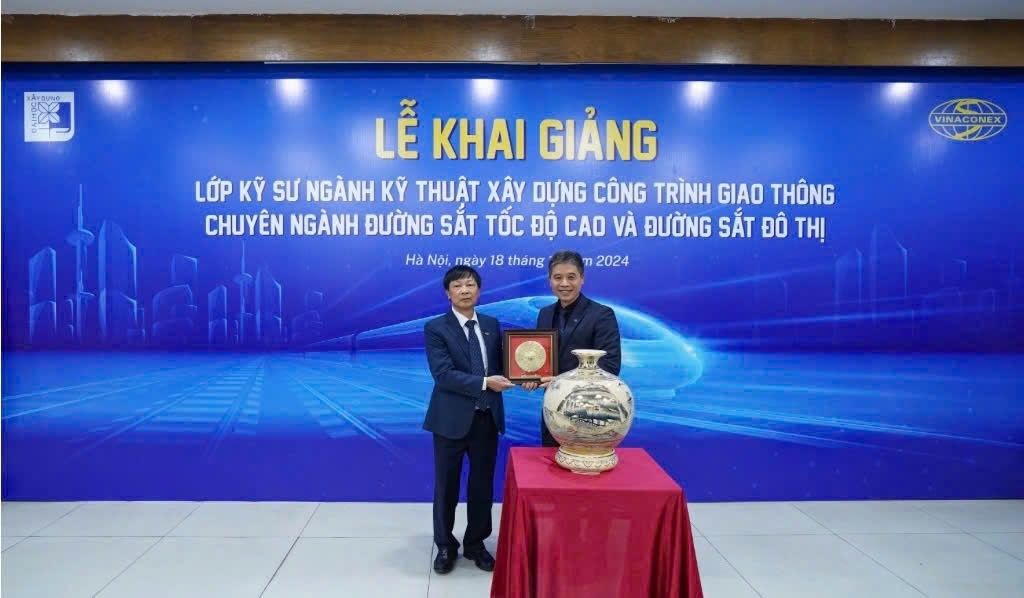Special mechanisms proposed for North-South high-speed railway project
Society – Economy - Ngày đăng : 17:25, 23/12/2024
Limiting bidding package scale to US$1.5 Billion

VACC affirms the mega project as both a great opportunity and a significant challenge for Vietnamese construction contractors, as capital construction is projected to cost approximately US$33 billion out of the total amount.
To effectively undertake the project, VACC Chairman Nguyen Quoc Hiep signed a proposal on December 18 to the Prime Minister, suggesting seven specific mechanisms for the project.
He proposed separating the infrastructure construction component from other technical components (signaling, electrification, and rolling stock). Each construction package should range between US$1 – 1.5 billion to align with the financial capacity of Vietnamese contractors. He also recommended allowing direct contractor appointments and a 5% price reduction mechanism.
Priority to be given to Vietnamese contractors
Given the scale and the use of domestic funding, VACC emphasized prioritizing Vietnamese contractors to foster local job creation, self-reliance, and capacity-building for future domestic and international projects.
Selection criteria for the contractors include prior experience with large-scale transport infrastructure projects of equivalent classification. Cooperation models with Vietnamese contractors as lead partners in joint ventures are encouraged, along with bonus points for joint ventures that engage local contractors for a majority share of the work.
Foreign contractors, if involved, should be required to partner with Vietnamese firms, with Vietnamese contractors taking on at least 50% of the workload. In addition, employing local labour at minimum 70% should be taken into account.
Financial and consultation flexibility

To ease financial requirements for Vietnamese contractors, VACC suggested combining the financial capacities of all joint venture members and reducing stringent financial benchmarks.
For consultancy roles, while the project follows FEED (Front-End Engineering Design) and EPC (Engineering, Procurement, and Construction) processes, VACC proposed allowing Vietnamese consulting firms to cooperate with foreign partners, ensuring independence in legal and financial matters.
Given the high technical precision required, VACC advocated strengthening supervision through partnerships between local and international consultants. During construction, foreign entities should transfer technologies to Vietnamese contractors to boost their capabilities.
Reducing dependency on foreign partners
During a parliamentary discussion on the investment policy for the project, the then Minister of Transport highlighted delays and cost overruns in previous metro projects due to insufficient preparation, land clearance challenges, and dependence on ODA (Official Development Assistance) loans.
For the project, Thang stressed minimizing foreign loans to no more than 30% of the total US$67.3 billion investment, focusing instead on domestic funding. Foreign loans, if necessary, should be untied and economically advantageous, so that during construction, there is no dependency or restriction on technology.
Vietnam aims to reduce its dependence on foreign partners in key projects, including the North-South railway project, in order to ensure its economic independence, enhance internal capabilities, mitigate financial risks and optimize costs and efficiency.
Past international cooperation models, such as for the Cat Linh-Ha Dong urban railway project, experienced serious issues like cost overruns, delays, and quality shortfalls. These serve as important lessons for Vietnam to reconsider its reliance on foreign contractors.
Building high-speed rail expertise

To prepare for the mega project and other national infrastructure projects, the Vietnam Construction Import-Export Corporation (Vinaconex) and Hanoi University of Civil Engineering recently launched a specialized training program for high-speed rail engineers.
According to Associate Professor Hoang Tung, Rector of Hanoi University of Civil Engineering, the program combines theoretical knowledge and practical skills to enable graduates to participate in real-world projects immediately.
Vinaconex Deputy General Director Nguyen Khac Hai emphasized the company’s commitment to innovation, human resource development, and readiness for key transportation projects, highlighting the collaboration as a step toward sustainable growth in the sector.
Selected participants with backgrounds in transport infrastructure engineering and significant experience in major transport projects will receive formal qualifications in high-speed rail and urban railway engineering upon completing the program.
By strategically investing in domestic contractors, workforce training, and technology transfer, the mega project aims to enhance Vietnam's capacity to handle complex infrastructure projects while reducing dependency on foreign partners.
